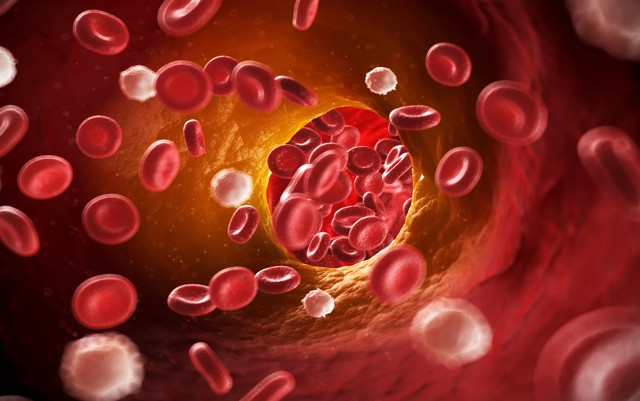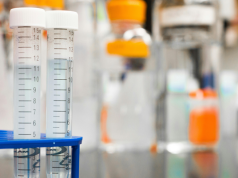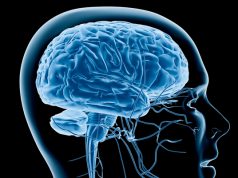Atherosclerosis is a complex inflammatory disease that plays a significant role in the development of heart disease and stroke. In the United States, heart disease is the leading cause of death and claims more lives than cancer. We typically think heart disease and stroke can hit without warning; actually, these diseases develop gradually over time.
Atherosclerosis is characterized by progressive deposition of atherosclerotic plaques (immune cells laden with oxidized low-density lipoproteins/Ox-LDL) followed by the narrowing of blood vessels (arteries) and impaired blood supply to vital organs, such as the heart and brain. Subsequently, inflammation in the intimal regions of the arteries occurs as a result of uncontrolled immunological injury and formation of free radicals. Sedentary lifestyle and bad dietary habits can worsen the disease. The existing treatments are moderately effective, albeit with side effects.
Cannabinoids and atherosclerosis
The discovery of endocannabinoids and their functional roles in the brain and other parts of the body has had tremendous implications in medical science. Cannabinoid receptors are widely present all over the cardiovascular system and that’s the reason researchers believe the endocannabinoid system might play a key role in the regulation of blood circulation and cardiac functions.
Expression of CB2 receptors in the cardiovascular system, such as myocardial cells, blood vessels and smooth muscle cells, are now confirmed.
Studies have reported variations in the expression of CB2 receptors in carotid artery plaques among stroke and asymptomatic patients. Therefore, CB2 receptor expression and signaling appears to be a protective response against acute and chronic pathological events. Additionally, the protective role of CB2 receptors has been documented in various events of atherosclerosis, including restenosis, myocardial ischemia and cerebral ischemia or reperfusion injury.
Studies are now zeroing in on biologically active molecules that influence the cannabinoid system, particularly phytocannabinoids. These studies preferentially employed cannabidiol (CBD) as it lacks psychoactive effects.
Due to ongoing research studies, the therapeutic role of cannabinoids in the treatment of cardiovascular diseases, including atherosclerosis, is now recognized.
Scavenging oxidized low density lipoproteins and toxic free radicals
We are well aware that elevated levels of cholesterol, particularly low-density lipoproteins, are the major risk factor for the onset of heart disease and stroke. Due to various biochemical changes and exposure to reactive oxygen species (ROS), or free radicals, the LDL gets oxidized into Ox-LDL that accumulates progressively in the interior layer of the arteries (subendothelial intimal region). These modified lipoproteins attract immune molecules (macrophages) and trigger inflammation and immune reaction (apoptosis) within atherosclerotic plaques (foam cells).
In advanced stages, the inflammatory immune reaction against the atherosclerotic plaques ends up in the plaque rupture. This is followed by damage to the interior layers of the blood supplying arteries, as well as plaque instability. These events trigger pro-atherogenic risks and also contribute to blood coagulation that impairs blood supply to the brain and heart and can cause stroke.
Pre-clinical evidence has demonstrated the role of CB2 deficiency in the development of oxidized LDL-mediated immune reaction. CB2 expression has anti-atherogenic properties by modulating the Akt survival pathway. In CB2-deficient experimental animals, impaired activity of the Akt survival pathway was observed. Studies have shown the interrelationship between CB1 receptors, CB2 receptor expression and oxidized LDL formation.
Studies have shown that selective activation of CB2 receptors by cannabidiol could be helpful in maintaining the integrity of coronary arteries by mitigating the endothelial dysfunctions, such as the accumulation of oxidized LDL and the narrowing of blood vessels.
So, the role of endocannabinoids and cannabinoid receptors are now evident. Altogether, we can assume that modulation of these receptors may have therapeutic implications on atherosclerosis.
Forget NSAIDs, weed is a novel anti-inflammatory drug!
Naturally, cannabinoids are immunomodulators with significant anti-inflammatory effects. As atherosclerosis is an inflammatory disease, cannabinoids could counter the progression of the disease as well as prevent the onset by blunting the inflammation.
Found not only in the brain, CB1 receptors are also present in immune cells — but at relatively lower levels. Endocannabinoids can regulate the immune system by inhibiting certain enzymes that are involved in the regulation of inflammatory reactions. Activation of endocannabinoids could treat immune-mediated injury of these vital organs. Studies have shown that THC has induced cell death of inflammatory T-cells and dendritic cells that resulted in immunosuppression. Cannabinoids suppress inflammatory responses by down-regulation of pro-inflammatory cytokines and chemokines production. Based on these research studies, it is now confirmed that cannabinoids can be helpful in treating inflammatory diseases, including atherosclerosis, by suppressing T-cells and other immune components.
Irrefutable evidence has shown that marijuana can be protective against inflammation associated with ischemic-reperfusion injury, a common problem that occurs after stroke or atherosclerosis. Another study has concluded that low dose oral THC has decreased inflammatory response in atherosclerotic plaques by attenuating lymphocyte proliferation and macrophage chemotaxis within atherosclerotic lesions, which are the crucial steps in the pathogenesis of atherosclerosis. This study clearly demonstrates the presence of CB2-receptors in the inflammatory cells, atherosclerotic plaques and the target organs.
By considering low doses of THC, the psychoactive and other side effects could be avoided. Now we are able to see that THC could be helpful right from the early stages atherosclerosis. This benefit is particularly desirable for someone who wants to prevent atherosclerosis onset.
Here come the downside: THC (but not low-dose THC) is not for everyone.
Although a number of studies have warned about the increased risk of angina and coronary problems among cannabis users, most experts believe that cannabis side effects are attributed to whole cannabis smoking, but are not related to other routes of administration or with CBD use.
Smoking can expose you to a variety of cannabinoids, which may not be suitable for all heart patients. To achieve cardiovascular benefits, you can opt for CBD instead of THC. Reliable research studies have warned that THC-mediated CB1 receptor modulation can be adverse for cardiac patients.
Although both CB1 and CB2 receptors are widely distributed in the cardiovascular system, as well as in pathological plaques, activation of these receptors may also contribute to the worsening of atherosclerosis. Recent studies have concluded that the negative effects of cannabis are linked with CB1 receptor activation, and hence THC is not suitable as an atherosclerosis treatment.
Here’s why…
THC activates brain localized CB1 receptors that lead to increased blood pressure and pulse rate. These factors increase angina risk and pose as an independent risk factor for stroke and heart attack. Additionally, weed smoking may also impair blood oxygen supply to the heart and the brain by increasing carboxyhemoglobin formation.
This might be the reason that whole cannabis smoking causes chest pain and acute coronary syndromes, but the opposite effect has been observed after targeting CB2 receptors alone.
To stay on the safer side, if you’re a heart patient, it’s better to avoid THC rich strains or whole cannabis smoking.
Instead, you can use CBD rich strains or CBD oils to treat and prevent atherosclerosis. The available evidence that supports CBD use for atherosclerosis is scanty. But the role of CB2 receptors in the pathogenesis has been proven. So, we have grounds to assume CB2 could be potentially used to treat or prevent atherosclerosis.
Yes, we are not wrong! This study has noted that modulation of the endocannaboid system, particularly CB2 receptors via non-inhalation routes, may have appreciable benefits on atherosclerosis treatment.
Conclusion
As the research progresses, we are able to understand the complete anti-atherosclerotic benefits of marijuana.
We remain undeterred by the temporary, negative effects of medical marijuana, as we are after its great treatment potential. Cannabis clinicians are now recommending edibles and vaporizers as a safer way to use cannabis — to avoid smoking-related effects.
Naturally occurring phytocannabinoids contains several cannabinoids, and different cannabinoids exert different effects on atherosclerosis treatment. Instead of considering THC, CBD rich strains could be a comparatively more effective — and safer — option when it comes to atherosclerosis treatment.






